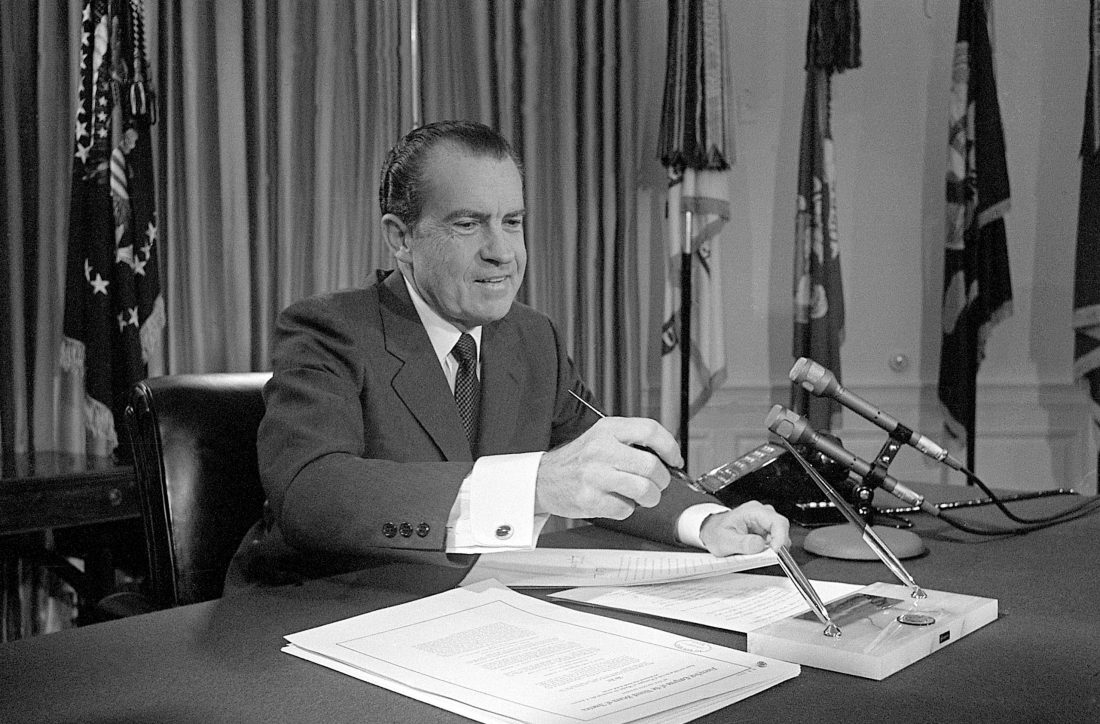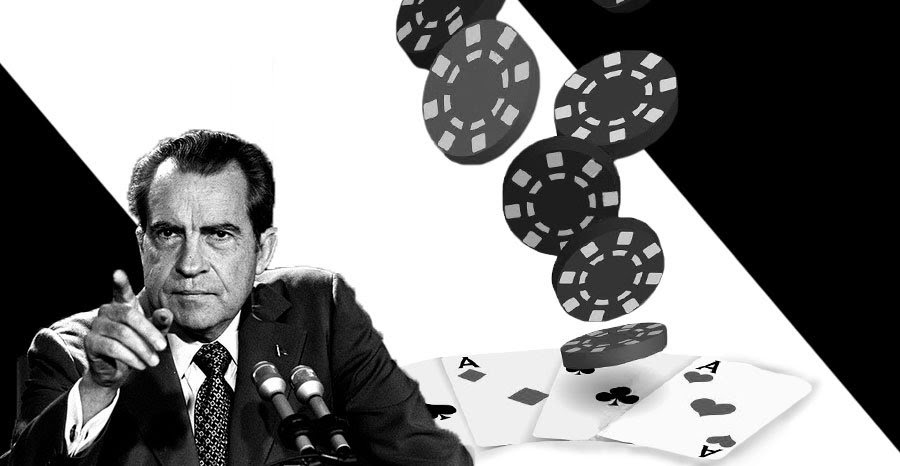
The role of poker in Richard Nixon’s career development
The political activities of the 37th President of the United States evoke many ambiguous associations. But his love of poker is not in doubt either. Working in the Navy, the man earned $150 a month. He was able to accumulate $7,000 solely through clever poker tactics. In comparative terms, that’s more than the current $100,000. The money raised went to fund the presidential campaign and got Nixon into the White House. Let’s take a closer look at the story of a delightful poker player and flamboyant politician.
When did the love of poker emerge
In 1941, a young man is sent to serve in the US Navy. A year later he is promoted to lieutenant and is looking for a way to diversify his time in the service. Nixon finds it interesting to watch fellow officers playing cards. Five-card stud was the most popular, and a draw variation was also frequently used. The stakes were small and did not paint much of a picture.
The future president often asked a buddy if there was a way to win consistently and steadily. Buddy smiled and replied that he would be relaxing on the beach right now with millions in the bank account, if a stable income was available in poker. These dialogues were not limited to humour, the friend shared strategies suitable for patient, calm and disciplined players. In 4 of 5 cases he advised against participation in draws and to be active only when sure of winning.

Turning the game into a lucrative business
The entertainment component faded into the background when there was an opportunity to make money. The newcomer quickly became accustomed to the poker table and learned the habits of his opponents. He noticed that quiet and unspoken people have a strong hand, while bluffers prefer to talk loudly than immediately give away a fake.
Nixon did not refuse to bluff, played aggressively and at the same time was able to be cautious. He had no desire to become a favourite, the idea of gaining a stable income seemed more important. The first flush royal was a memorable experience. It was difficult to keep his composure, but Richard managed and did not give himself away prematurely. As he gained experience, the player became more and more bold, unashamedly ripping off fellow players.
Immersion in the game obliged him to observe etiquette, to refuse other amusements. Once a party arrangement forced a young serviceman to refuse dinner with a famous aviator. Charles Linberg became the first man to fly solo across the vast Atlantic Ocean. It was a great honour to talk to him, but keeping his promise to his opponents proved to be a higher priority. Such discipline influenced the life of the politician many times over and enabled him to achieve high office.
Political passions
After demobilisation, it was time to plan the distribution of savings. The man did not dream of politics and wanted to buy a house, supplementing his own capital with his wife’s savings. A letter from a business acquaintance, offering to launch a political campaign, was enough to put off the idea of buying a property and plunge into the unfamiliar, but very curious, field.
The congressional elections were an excellent avenue for investment and allowed me to get into the House of Representatives. Next came the positions of Senator, Vice President. 1969 presented the opportunity to take the presidency. Knowledge of poker helped to choose a line of conduct, read the hidden agendas of opponents and predict the development of situations.
But every player faces setbacks from time to time, a passion for bluffing set a great poker player up. Richard Nixon made mistakes and in 1974 became the only American president to resign.
